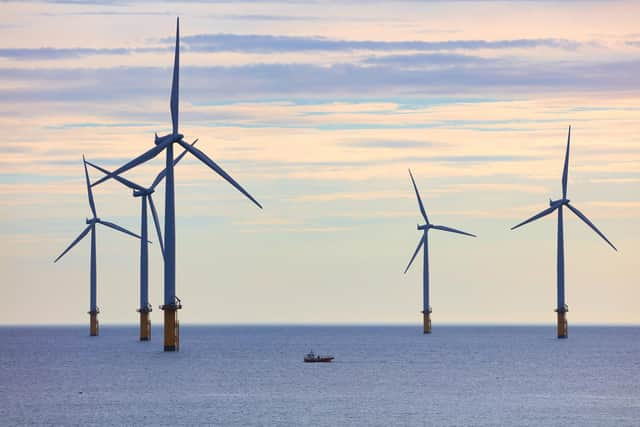How Britain and South Korea can help each other in energy transition - Grant Shapps
But no-one involved with that fledgling project could have imagined what it might lead to. Today, South Korea is the fifth largest automotive manufacturer in the world – and it all happened here.
What an incredible catalyst that early collaboration between our two countries in the 1970s proved to be: the beginning of a success story that, 50 years later, goes from strength to strength. And 140 years after Britain and Korea first established diplomatic relations, our two countries are closer today than they have ever been in the past.
Advertisement
Hide AdAdvertisement
Hide AdOn our energy transition, we can create the secure, clean and reliable power that both our economies need to grow. Through the UK-Korea framework, signed last June, both governments reaffirmed commitments to tackling climate change, and co-operating together to enhance energy security, particularly on renewables.


That’s why, as the new UK Secretary of State for Energy Security and Net Zero, I’m so excited to be in Korea this week.
Our two nations stand together as partners in the energy transition. But we also stand together in condemning Putin’s abhorrent war on Ukraine. The measures we are taking to isolate Russia internationally, punishing it economically, and helping Ukraine defend its sovereign territory.
But although Vladimir Putin’s weaponization of energy has had a huge impact on our markets over the past year, the truth is that Russia’s gas, just like the president himself, belongs firmly in the past. Our future in Britain will be built on renewables, nuclear power and greater energy efficiency, whilst ensuring that the gas used during the transition is from reliable sources - like our own North Sea.
Advertisement
Hide AdAdvertisement
Hide AdBoth our countries recognise the need to speed up the global energy transition.
I would obviously urge South Korea to bring forward its coal phase-out from 2050, join the ‘Powering Past Coal Alliance’ and incorporate the COP26 ‘Global Coal to Clean Power’ statement into its energy planning.
The UK’s own ‘coal-to-clean’ story has been powered by offshore wind and we are eager to share expertise in this field. Electricity produced from coal in the UK has plummeted from 40 per cent in 2012 to just 1.5 per cent last year.
As a result, we are generating record amounts of electricity by wind – over half our total electricity comes from wind power on a good day.
Advertisement
Hide AdAdvertisement
Hide AdThe UK has established itself as a world leader in offshore wind. Our offshore capacity of 13.8GW is the greatest in Europe, and only second to China globally.
The UK is an ally in South Korea’s offshore wind development. You have set an impressive target of 12 GW offshore wind by 2030, with over 25 projects already in development.
On this 140th anniversary of UK/Korea diplomatic relations and, as we approach the 50th anniversary of the iconic Hyundai Pony launch, let us look forward to future success. A future of greater energy security. A future where clean renewables and nuclear power rapidly make fossil fuels obsolete. And a future of close, mutually-beneficial collaboration between Britain and Korea.
An abridged version of a speech delivered by Energy Security Secretary Grant Shapps at the Offshore Wind Industry Seminar in South Korea.